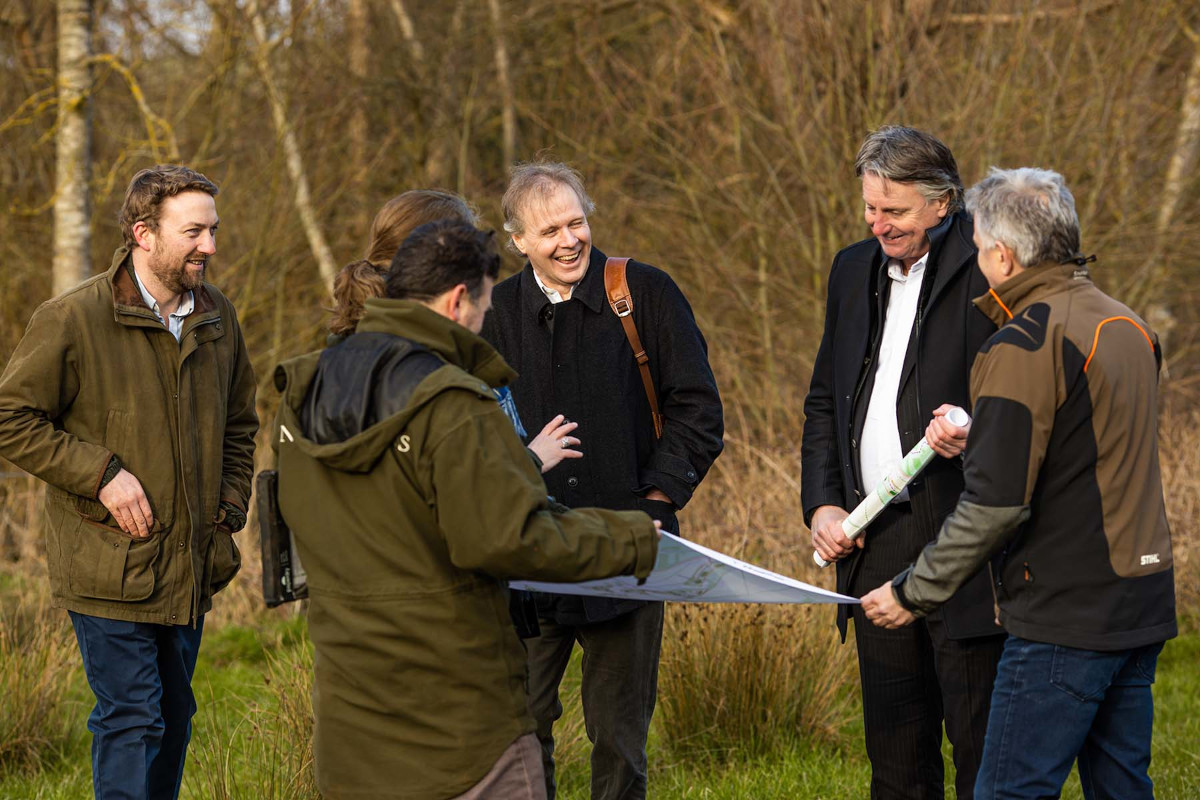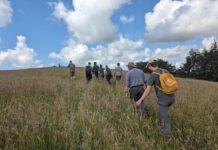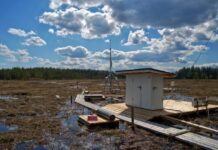
England and Wales have just unveiled ambitious plans to dramatically increase woodland areas – but neither has addressed the financial and practical viability of doing so.
The new England Trees Action Plan, announced by Defra secretary George Eustice on 18 May, aims to triple the amount of woodland creation in just four planting seasons. While it was well received by nature conservationists, it left landowners and investors in the dark as to how its aspirations will be fulfilled.
“While it is positive that we do now have a firm target for woodland creation to work towards in England, the action plan leaves a number of unanswered questions about how to turn that pledge into a reality,” says Ed Daniels, head of forestry at John Clegg & Co.
The online Accelerating Woodland Creation conference on 26th and 27th May will provide answers, say the organisers. “A unique array of 35 experts will discuss the business case for planting on different types of land,” says a statement from the group, “from increased woodland on some of the nation’s most iconic rural estates to planting vacant and derelict land.” Lord Goldsmith will open the event, which will also be addressed by Forestry Commission chair Sir William Worsley and Natural Resources Wales chief executive Clare Pillman.
“Spurred on by the COP26 climate summit, local authorities, environmental charities and businesses are enthusing about planting more trees,” says conference organiser Dr Bruce Howard. “But as Government aims for a three- to four-fold increase in woodland creation, big questions remain as to how it will be made to happen. The vital questions are where all the trees are supposed to go, where the finance will come from, whether we will have enough seed, and who will look after them for decades to come.”
The conference will see the formal announcement of a major scheme pioneered by the Forest Canopy Foundation. In this, 15 new woodlands covering over 140ha of degraded farmland are to be planted at the world-famous Blenheim Estate in Oxfordshire. This project is to be funded by national construction and regeneration firm, the Morgan Sindall Group.
It will also unveil a new ‘behind the scenes’ film which opens the question as to whether England and Wales will have access to the tree seed and young trees required to meet planting demands.
“With the new England Trees Action Plan, a new National Forest for Wales, and international summits on nature and climate only months away, this event is perfectly timed,” says Dougal Driver, chief executive of Grown in Britain. Topics will include the business case for landowners and managers to become involved in woodland creation and management, opportunities in agroforestry and planting on derelict land, and the skills and infrastructure required.
Key sessions include:
Weds, 26 May:
TURNING AMBITION INTO ACTION
1 to 2.15 pm
In this opening session, we will clarify the ambitions and vision for accelerating woodland creation in England and Wales. Our keynote will address the crucial question of land and finance. Address by Rt Hon Lord Goldsmith, HM Government. Additional VIP address TBC
· Keynote: The availability of land and finance. Edward Daniels, Head of Forestry, John Clegg & Co.
HARNESSING THE VALUE OF EXISTING WOODLAND
4 to 4.50 pm
Management of existing woodland is an essential part of ensuring that woodland delivers value for the owners as well as wider society. Nonetheless, this activity is often overlooked. Less than three-fifths of woodland in England and Wales is currently subject to management. In this session, we will explore what management means in practice, and what the business case is for the stewardship of woods throughout their life. A panel discussion chaired by Dr Gabriel Hemery, Chief Executive, Sylva Foundation. Panel members:
· Matthew Bennison, Senior Associate Director, Strutt & Parker
· Graham Taylor MBE, Pryor & Rickett
· Ruth Pybus, Owner, Broadleaf Wales
· Dr Alec Dauncey, Lecturer, University of Bangor
Thurs, 27 May
INNOVATION & PARTNERSHIP THAT DELIVERS – PART 1
9.30 to 10.20 am
The first of three sessions in which we get to know some of the brilliant initiatives that are chart a course towards fulfillment of national ambitions. In this session, we discover what Lowther Estates in the Lake District of England has achieved through planting in recent decades. We’ll also get to know Stump up for Trees, which has embarked on pioneering work with a vision for all of Wales. Kindly sponsored by Forest Carbon Ltd.
· James Hepburne-Scott, Co-founder of Forest Carbon Ltd. will be in conversation with Keith Powell, Founder of Stump up for Trees and David Bliss, CEO of Lowther Estates.
THE OPPORTUNITY OF VACANT AND DERELICT LAND
10.50 to 11.40 am
The urgency of meeting woodland creation ambitions in England and Wales requires us to consider opportunities on all types of land for planting. This includes land which has been subject to former industrial use and is not currently being managed purposefully. Join this session to discover the know-how we already have for planting on vacant and derelict land, and assess the role planting on this land-use type could play in serving local needs and meeting national ambitions. Help to shape this vital dimension of accelerating woodland creation. Panel discussion chaired by John Lockhart, Chairman of Lockhart Garratt Ltd. Panelists:
· Euan Hall, Chief Executive of the Land Trust
· John Handley, Professor of Forest Sciences, University of Bangor
· Franki Appleton, Planting on Vacant and Derelict Land Lead, Defra
· Paul Nolan OBE, Chief Executive, Mersey Forest
INCENTIVISING AGROFORESTRY AND WOODLAND COVER ON FARMLAND
12 noon to 12.45
There is now growing interest in the opportunity to increase tree planting and woodland cover on farmland, connecting this with food production and many other outcomes. Join this panel of experts to discover what it means in practice, and how it can be made more attractive to farm businesses. A panel discussion chaired by Charles Cowap, independent rural advisor. Panelists to include:
· Alisha Anstee (National Farmers Union)
· Jenny Phelps (Farming & Wildlife Advisory Group South West)
· Greg Vickers (Grosvenor Estate)
· Jerry Langford (Woodland Trust Wales)
For the full programme and to register for a ticket, visit https://ecosystemsknowledge.events.idloom.com/awcm21







